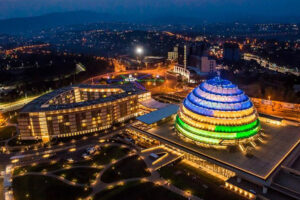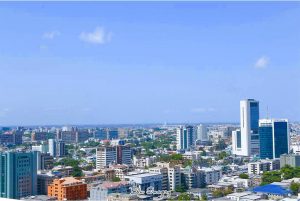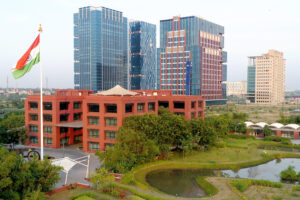FC4S in Africa
A survey for Africa Climate Week in March 2019 showed that most African nations were already starting to implement their mitigation and adaptation commitments under the Paris Agreement. But over half of the countries have struggled to mobilize climate finance, less than one quarter of the countries have a financing strategy, and only one third have appropriate financial instruments.
Private finance is desperately needed, which is why the FC4S has launched a new work programme for the continent. FC4S Africa will work with its five Africa member centres – Abidjan, Cairo, Casablanca, Lagos and Nairobi – to encourage strategic action, collaborate with peers across the continent, and facilitate engagement with major international hubs.
There is, despite many old-fashioned notions about Africa, plenty of private money on the continent. Nairobi, for example, is a thriving regional hub for banks, businesses and entrepreneurs with money to invest. The two wealthiest individuals in Africa are both Nigerian and each has a large foundation that supports innovation in Africa.
But there are many barriers to boosting sustainable finance in African countries, including a lack of clear policies and regulatory frameworks on climate change, a lack of awareness on the sources of climate finance and limited engagement from the private sector.
These barriers, and the different levels of development on the sustainable finance agenda in African financial centres, requires a coordinated strategic effort to help mainstream sustainable finance as a foundational element of financial centre development strategies.
The FC4S Africa programme will help the centres assess the green finance landscape in their countries and set strategies for sustainable finance development. It will provide technical assistance on specific green and sustainable finance projects, including support on the development of a green bond market in Abidjan, activating the green bond market in Egypt, and a proposal to advance “green tagging” of bank loans in Lagos.
The development of an Africa programme was announced in March 2019, as Nairobi became the 22nd FC4S member. Development involved rounds of consultations with African members, and prospective members, on their greatest priorities to steer and support sustainable finance and the role FC4S could play. The results formed the regional workplan which is designed to organize and initiate implementation of the programme.
The FC4S African work programme covers a wide range of potential collaborations. Most in demand is individual and institutional capacity building (e.g. Casablanca assisting Abidjan with the development of its finance city authority), other areas include technical assistance on specific issues (e.g. the green tagging project in Lagos), exchanges between African and non-African financial centres, twinning arrangements, and further recruitment of key financial centres to the African network.
A recent development has been the commissioning of an FC4S study aimed at cataloguing the existing and planned engagement of the nine key global sustainable finance networks in Africa, as well as the present interaction of the five FC4S member centres in Africa with these networks. The result is intended to inform and underpin a series of consultations with the networks aimed at bringing them on a convergent course and ensuring that their collective impact leads to a quantum leap for sustainable finance in Africa.
The programme will work with the five current African members – and is open to working with other financial centres that join as observers – to encourage strategic action, collaborate with peers across the continent, and facilitate engagement with major international hubs.









































